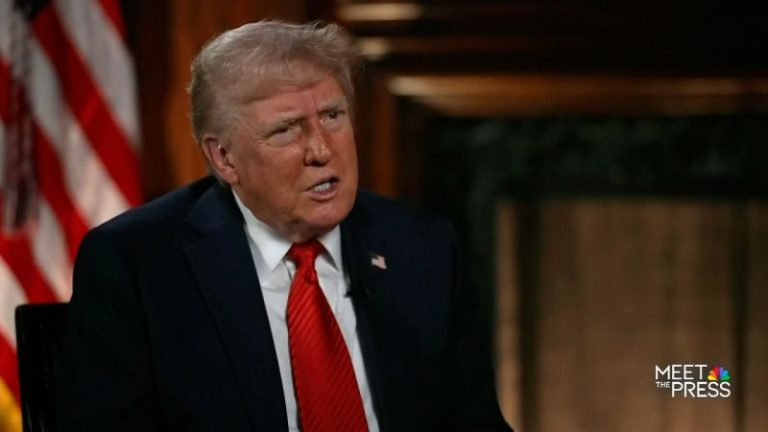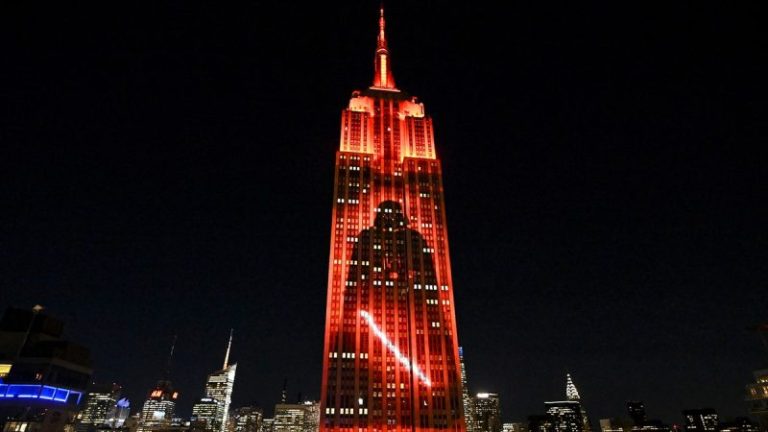President Vladimir Putin said in remarks published on Sunday that Russia had sufficient strength and resources to take the war in Ukraine to its logical conclusion, though he hoped that there would be no need to use nuclear weapons.
Putin ordered thousands of Russian troops into Ukraine in February 2022, triggering Europe’s biggest ground conflict since World War Two and the largest confrontation between Moscow and the West since the depths of the Cold War.
Hundreds of thousands of soldiers have been killed or injured and US President Donald Trump has repeatedly said he wants to end the “bloodbath” that his administration casts as a proxy war between the United States and Russia.
In a film by state television about Putin’s quarter of a century as Russia’s paramount leader entitled “Russia, Kremlin, Putin, 25 years,” Putin was asked by a reporter about the risk of nuclear escalation from the Ukraine war.
“They wanted to provoke us so that we made mistakes,” Putin said, speaking beside a portrait of Tsar Alexander III, a 19th century conservative who suppressed dissent. “There has been no need to use those weapons … and I hope they will not be required.”
“We have enough strength and means to bring what was started in 2022 to a logical conclusion with the outcome Russia requires.”
Trump has been signaling for weeks that he is frustrated by the failure of Moscow and Kyiv to reach terms to end the war, though the Kremlin has said that the conflict is so complicated that the rapid progress Washington wants is difficult.
Former US President Joe Biden, Western European leaders and Ukraine cast the invasion as an imperial-style land grab and repeatedly vowed to defeat Russian forces, which control about a fifth of Ukraine.
Putin portrays the war as a watershed moment in Moscow’s relations with the West, which he says humiliated Russia after the Berlin Wall fell in 1989 by enlarging NATO and encroaching on what he considers Moscow’s sphere of influence.
Trump has warned that the conflict could develop into World War Three. Former CIA Director William Burns has said there was a real risk in late 2022 that Russia could use nuclear weapons against Ukraine, an assertion dismissed by Moscow.
Putin in power
Putin, a former KGB lieutenant colonel who was handed the presidency on the last day of 1999 by an ailing Boris Yeltsin, is the longest serving Kremlin leader since Josef Stalin, who ruled for 29 years until his death in 1953.
Russian dissidents – most now either in jail or abroad – see Putin as a dictator who has built a brittle system of personal rule reliant on sycophancy and corruption that is leading Russia towards decline and turmoil.
Supporters cast Putin, who Russian pollsters say has approval ratings of above 85%, as a savior who pushed back against an arrogant West and put an end to the chaos which accompanied the 1991 disintegration of the Soviet Union.
In the carefully choreographed state television film, which gave viewers a rare look behind the notoriously closed life of the Russian president, Putin was shown offering chocolates and a fermented Russian milk drink to Pavel Zarubin, a top Kremlin correspondent, in his private Kremlin kitchen.
Putin said that he first knelt in prayer during the 2002 Nord-Ost Moscow theater crisis, when Chechen militants took over 900 people hostage. More than 130 hostages were killed.
“I don’t feel like some kind of politician,” Putin said of his 25 years in power as president and prime minister.
“I continue to breathe the very same air as millions of Russian citizens. It is very important. God willing that it continues as long as possible. And that it doesn’t disappear.”










